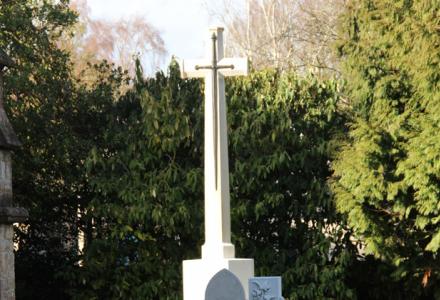At the outbreak of war, Hay’s Methodist minister, the Reverend Bernard Linden Webb declared himself a pacifist. Three months into the slaughter, his belief that war was wrong remained unshaken. But Hay’s Methodist congregation found itself divided. Many considered their preacher’s views ‘idealistic and impractical’, others were persuaded by his passionate advocacy of peace.
Fifteen boys from Webb’s parish joined up, almost twenty percent of the congregation. Webb never placed his own principles above the welfare of young men who now (more than ever) needed his strength, support and spiritual guidance. Nor did he avoid donating what he could to support the sick or wounded in their hour of need.
In time, the First World War claimed the lives of 4 of those 15 men, another 9 became seriously sick or wounded, some returned home with missing limbs and horrific facial injuries. Faced with such grievous loss, Hay found their difficult priest harder and harder to tolerate.
A week before the first conscription plebiscite was held, Webb handed his resignation to the President of the Methodist convention. The church supported conscription arguing it entailed an ‘equality of sacrifice’. Webb believed no man should be forced to kill another—what could be a greater departure from Christ’s teaching? The first conscription referendum was defeated and then a second. The views of Linden Webb seemed vindicated.
Webb’s story reminds us that far from uniting Australia, the Great War sowed bitter divisions. Families, communities, and congregations were torn apart by wartime privation and bitter debates over conscription. It retrieves a dissenting voice and reminds us of widespread and principled opposition to Australia’s involvement in the First World War Finally, it suggests the experience of grief and loss sometimes transcended political and personal loyalties. Webb tended to all his flock, including those who chose to serve in uniform.



